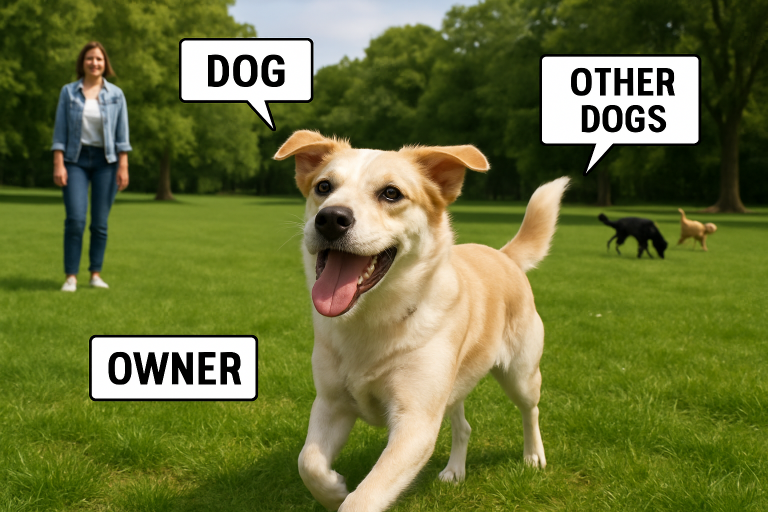Table of Contents
- Introduction
- Physical Exercise
- Mental Stimulation
- Socialization
- Proper Nutrition
- Routine Healthcare
- Comfortable Environment
- Quality Time
- Training and Positive Reinforcement
- Conclusion
Every dog deserves a rich, happy life filled with more than just the basics. Dogs, like people, benefit from thoughtful care that nurtures their body, mind, and spirit. By paying attention to their unique needs, you can profoundly improve their daily experience and overall well-being. For those in the Minneapolis area, partnering with a trusted dog groomer Minneapolis can also be part of this holistic approach, ensuring your dog feels clean, comfortable, and well-cared for. Fulfilling your dog’s needs goes far beyond regular feeding and a safe home. From exercise to emotional enrichment, tailoring your care to your dog’s personality and preferences ensures a deeper, more meaningful bond. Below, you’ll find actionable strategies—based on expert advice and backed by research—to elevate the quality of your dog’s life and cultivate a truly happy companion.
Physical Exercise
Long walks, energetic play sessions, and even hikes are essential for your dog’s physical well-being. Exercise helps manage weight, boosts cardiovascular health, and supports healthy joints. However, the benefits are more than just physical—allowing dogs to sniff and explore during walks can significantly reduce stress and provide valuable mental stimulation. Varying activities and letting your dog set the pace for some of their outings can dramatically enhance their enjoyment and satisfaction. Try introducing new forms of exercise, such as agility courses or swimming, especially for breeds that thrive on high energy output. Remember, a well-exercised dog is often a calmer, more content companion at home. Tailor activity levels to your dog’s age, breed, and individual preferences for maximum benefit and safety.
Mental Stimulation
A mentally engaged dog is a happy dog. Activities that challenge your dog’s brain, such as treat-dispensing puzzles, scent games, or learning new commands, prevent boredom and reduce the chance of destructive behaviors. Combining training sessions with interactive toys ensures your dog’s cognitive needs are met every day. Scheduling short, frequent play sessions or rotating toys every few days can keep activities fresh and interesting for your pet. This kind of engagement can also boost confidence in anxious or shy dogs and enhance their problem-solving skills as they grow older.
Socialization
Positive interaction with other dogs and humans is crucial for your dog’s behavioral development. Regular playdates, visits to the dog park, and exposure to new settings help your dog build confidence and adaptability. Ideally, socialization should begin at an early age, but even adult dogs can benefit from controlled, positive encounters that promote social growth. Monitor your dog’s body language to ensure interactions are positive and always respect their boundaries. Reward appropriate social behaviors, and never force your dog into situations that seem overwhelming or stressful for them.

Proper Nutrition
Nutrition is foundational to health and happiness. Choose high-quality food that’s appropriate for your dog’s breed, age, and activity level. Regularly discuss meal planning and treat use with your veterinarian to avoid nutritional imbalances and to maintain a healthy weight. Fresh water should always be available, and treats should be used strategically. Consider occasional healthy “extras” like small amounts of plain vegetables or fruit—always avoiding foods that are toxic to dogs, such as grapes, raisins, and onions.
Routine Healthcare
Veterinary care is more than just annual vaccinations; it encompasses a comprehensive range of services. Schedule regular wellness checks, maintain parasite prevention, and prioritize dental health. Early detection of issues through routine exams can add years to your dog’s life, as your veterinarian can catch and treat conditions early—long before they become serious. Don’t overlook at-home care, such as regular tooth brushing and monitoring for lumps, bumps, or changes in behavior. A close partnership with your vet ensures every aspect of your dog’s health is covered year-round.
Comfortable Environment
A stress-free, comfortable living space is vital for your dog’s well-being. Provide a soothing and clean resting area that suits your dog’s size and sleeping preferences. Safety-proof your home by securing hazards like electrical cords and toxic plants, and ensure there are quiet spaces for your dog to retreat when needed. Grooming is also part of creating a comfortable environment. Regularly brushing your dog’s fur, cleaning their ears, and maintaining their nail length helps keep your dog looking and feeling their best. A trusted dog groomer in Minneapolis can help manage hygiene for dogs with special coat care needs.
Quality Time
The special bond between you and your dog flourishes through quality time. Daily moments, no matter how brief, can have a profound impact on your dog’s happiness and trust in you. Enjoy cuddling, gentle massages, or simply sitting together quietly—these interactions help your dog feel secure and loved. Try new shared experiences such as hiking, training classes, or exploring nature together. These positive, shared adventures nurture a strong emotional connection and lasting memories.
Training and Positive Reinforcement
Investing in consistent, reward-based training promotes communication and trust. Praise, treats, and play help reinforce desired behaviors, making learning enjoyable for your dog. Regular training sessions also offer crucial mental stimulation and help address minor behavioral challenges before they escalate. Whether your goal is mastering basic commands or learning new tricks, the process itself strengthens your relationship and ensures your dog feels confident, safe, and understood.
Conclusion
By weaving together exercise, mental enrichment, proper nutrition, healthcare, comfort, and quality time, you create a life for your dog that goes well beyond the basics. Every small effort—whether it’s a long walk, a puzzle game, a grooming session, or quiet companionship—contributes to their overall happiness and health. When you consistently nurture both body and spirit, your dog not only thrives but also builds a stronger, more trusting bond with you. Ultimately, the greatest reward is a joyful, well-rounded companion who feels loved, secure, and truly part of the family.

